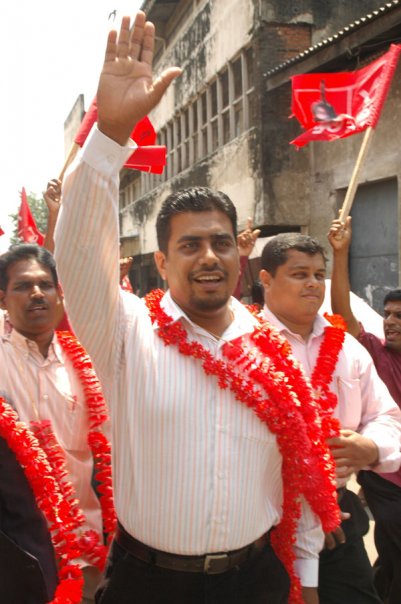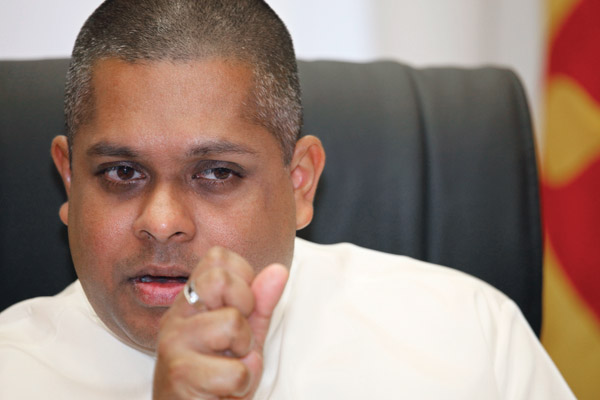The Significance Of FSP Candidacy In The Eighth Presidential Election
Duminda Nagamuwa

By Sumanasiri Liyanage -
Mahinda Rajapaksa has to face his erstwhile colleague in the cabinet and the General Secretary of the SLFP, former Minister of Health, Maithripala Sirisena at the forthcoming presidential election. Since many parties including the main opposition party, UNP, and civil society organizations have already decided to back Maithripala’s candidacy, he has now emerged as the main contender to the incumbent president
Janatha Vimukthi Peramuna, one of the leading left parties has announced that it will boycott the presidential election although rumors are in the air that its central committee wanted Anura Kumara Dissanayake, de facto leader of the parliamentary opposition to contest. It is in this context marked by the absence of JVP in the presidential race in spite of a 200% increase in its vote at the Uva Provincial Council election held some time ago, that the breakaway group of the JVP, Frontline Socialist Party (FSP) decided to field a candidate representing the social left in Sri Lanka that at the moment is not numerically very strong.Read More
A Reform Agenda: Tightening Up Foreign Policy And Foreign Relations
Vass

President Mahinda Rajapaksa himself is of the view that our Ministry of External Affairs is a mess. His offer to Mangala Samaraweera to make him Foreign Minister indicates his realization that his greatest blunder is the hash the troika that runs the Ministry has made of our international relations. And he confirmed this to Vasantha Senanayake, when Basil accused him of criticizing the Foreign Minister openly.
He had assured Mangala that he would not inflict Sajin Vass Gunawardenaon him as a Monitor, which suggests he realizes what a disaster that particular appointment has been. When it was made, he claimed that at least now letters were being answered. That was a necessity, but the power Sajin exercised led to the Minister then abdicating all authority and handing over decision making to his Monitor.
Despite that the crucial letter sent by the Indian Prime Minister before the vote in Geneva in 2012 lay unanswered. In fairness though, that factor is true of our administration in general, and the requirement that letters be answered in three days has been interpreted to mean that at least three days must lapse before a reply is even thought of. One reason I had high regard for Maithripala Sirisena previously, and said so often in my discussions of my work in the North and East as Advisor on Reconciliation, is that his Ministry usually responded to my transmission of complaints from the public. But most Ministries kept silent, though occasionally there were flurries of activity after I had brought the matter up in COPE.Read More



